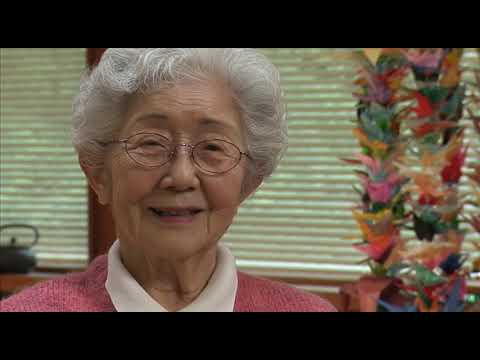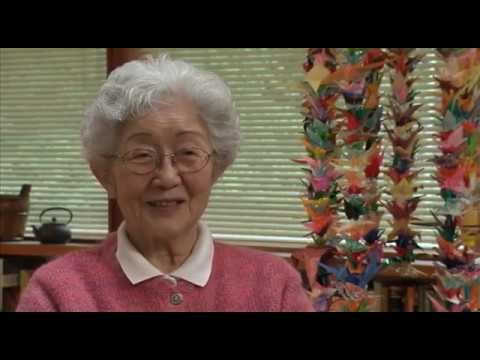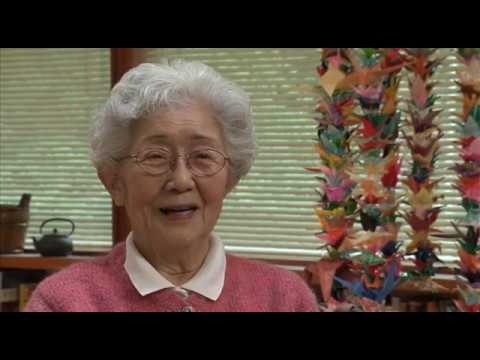Leaving home, ferry ride, train ride – Michi Noritake (OH0008)
Transcript
It was really sad, the saddest day, darkest day of our life. And people came to say goodbye, and we didn’t know where we were going. Oh, it was really sad. But we, Mother was very brave, we all carried two suitcases. And we were so lucky because the army convoy came and picked us up, each home was picked up by army. Well, on Vashon, our friend was telling us, they had to walk half a mile with two suitcases in their hands… and then the convoy came and picked him up. So we were very, treated nicely — we were the first ones to go, and they came. I remember our, the convoy came and picked us up, and the soldiers looked at us, like, “Oh, enemy.” They were really scared, too, and we were scared of them. And then we didn’t say much, they just, so we went to the Eagledale dock, and we all had to walk after we got off, the, with our suitcase in our hands. And we all, I think, wore our very best clothes ’cause we didn’t know what was gonna happen. Everybody wore hats and good shoes, you know, and coats, because it was, March was still cold. When you think about it, tears come. It was so long ago, but yet you feel the pain. The people were very good, and the neighbors, they were so sorry we had to go. And then when we got across, and we had to get on the train, and we were really scared more than anything, afraid, we didn’t know where we were going. And then all the trains had the blinds down, so, and we were kind of shoved in. But we chugged along and there was a lot of people waiting and waving and they were sort of sad to see us go.
But after we got on the train, maybe the first day, the soldiers themselves were very scared, and after we got to know them, maybe the next day or so, they said to us, “Why are you people going?” We’re just like… you know, they thought we were just like them. And thought it was so wrong that we should go. And then as we traveled along, we became more friendly. They were from New York, these soldiers that took us down. And then towards the end, whenever we would travel down on the train, it would be open space, and then they would pull the blind up, and so we could look out as we traveled down. And then when we came, or when we’d come into a city or something, then they’d put the blinds down. But they were the most friendliest soldiers, and young men. Along the way we went, sometime, someone would have a guitar or something, and we all get together and we’d sing, It was, you know, sad, and yet we had fun going down. Pretty soon they would talk to us, and they said, oh, it was so wrong to see us go.




